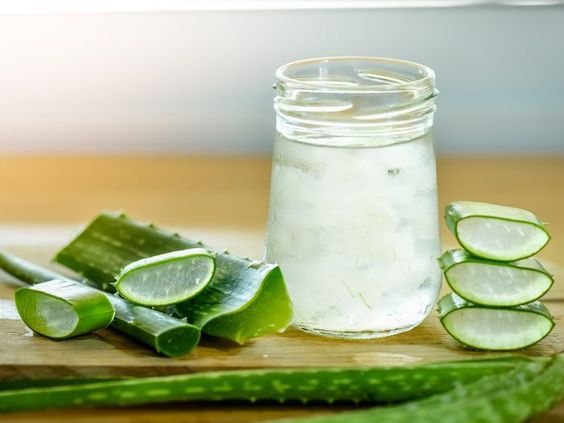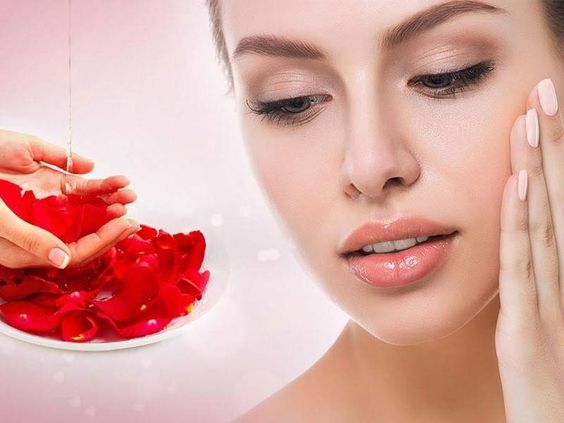Is Aloe Vera Gel Whitening
Aloe vera gel may help brighten skin tone and reduce hyperpigmentation, but there’s no guarantee it will significantly whiten your skin.
Here’s what we know:
-
Aloe vera contains aloin and aloesin, which may have some skin-lightening properties. These compounds may work by inhibiting tyrosinase, an enzyme involved in melanin production. Melanin is the pigment that gives skin its color.
-
Some studies suggest that aloe vera can be effective in reducing hyperpigmentation caused by sun damage or acne scars.
However, more research is needed to confirm aloe vera’s effectiveness for skin whitening and to determine the long-term safety of using aloe vera for this purpose.
Here are some things to keep in mind if you’re considering using aloe vera for skin whitening:
- It may take several weeks or months to see results. Read about Can Rose Water Remove Pimples
- Aloe vera may not be effective for everyone.
- It’s important to use aloe vera gel that is free of aloin, as aloin can irritate the skin.
What is Aloe Vera?
Description and Origin
Aloe Vera is a succulent plant species of the genus Aloe. It originates from the Arabian Peninsula but grows wild in tropical, semi-tropical, and arid climates around the world. Known for its thick, fleshy leaves that store water, Aloe Vera is a hardy plant that has been utilized for centuries.
Historical Uses
Historically, Aloe Vera has been used for medicinal purposes. Ancient Egyptians referred to it as the “plant of immortality” and used it in their beauty regimes. Its medicinal uses have also been documented in Chinese and Indian Ayurvedic medicine. Don’t Miss to Check Out Our Website: Canada Current

Chemical Composition of Aloe Vera
Key Components
Aloe Vera is packed with over 75 active constituents, including vitamins, minerals, enzymes, sugars, amino acids, and anthraquinones.
Benefits of Each Component
- Vitamins: Aloe Vera contains vitamins A, C, and E, which are antioxidants. It also contains vitamin B12 and folic acid.
- Enzymes: Enzymes like bradykinase help reduce excessive inflammation.
- Amino Acids: Aloe Vera provides 20 of the 22 human-required amino acids and seven of the eight essential amino acids.
- Anthraquinones: Compounds like aloin and emodin have analgesic, antibacterial, and antiviral properties.
Aloe Vera in Skincare
Common Uses
Aloe Vera is commonly used in skincare products due to its moisturizing and soothing properties. It is a popular ingredient in lotions, creams, gels, and ointments.
Popularity in Beauty Products
Its popularity stems from its ability to address a variety of skin issues, including dryness, acne, and irritation. It’s also praised for being suitable for all skin types.
Understanding Skin Whitening
Definition of Skin Whitening
Skin whitening, also known as skin lightening or bleaching, involves using substances to lighten skin color. This can be to reduce the appearance of scars, hyperpigmentation, and dark spots.
Cultural and Social Aspects
Skin whitening is a practice rooted in cultural and social preferences in many parts of the world, often driven by the association of fair skin with beauty and status.
How Does Skin Whitening Work?
Mechanisms Behind Skin Whitening
Skin whitening works by reducing the concentration or production of melanin in the skin. Melanin is the pigment responsible for skin color.
Common Ingredients in Whitening Products
Typical ingredients in whitening products include hydroquinone, mercury, and natural extracts like licorice and bearberry.
Aloe Vera’s Potential for Skin Whitening
Scientific Studies and Evidence
Several studies suggest that Aloe Vera may have skin-lightening properties. Research indicates that compounds like aloin can inhibit the enzyme tyrosinase, which is involved in melanin production.
Anecdotal Evidence and User Reviews
Many users claim that regular application of Aloe Vera gel has helped them achieve a brighter complexion and reduce dark spots.
Key Components of Aloe Vera for Whitening
Aloin and Its Effects
Aloin, a compound found in the Aloe Vera plant, has shown potential in depigmentation by inhibiting melanin production.
Vitamin C and E Content
Aloe Vera contains vitamins C and E, both of which are known for their skin-brightening and antioxidant properties. These vitamins help reduce oxidative stress and promote skin health.
Enzymes and Amino Acids
The enzymes and amino acids in Aloe Vera support skin regeneration and repair, which can lead to a more even skin tone.
How to Use Aloe Vera for Skin Whitening
DIY Aloe Vera Gel Preparation
To prepare Aloe Vera gel at home:
- Cut a leaf from the plant and wash it.
- Peel off the green outer layer to reveal the clear gel.
- Scoop out the gel with a spoon.
- Blend the gel to achieve a smooth consistency.
Store-Bought Aloe Vera Products
If DIY isn’t your thing, numerous store-bought Aloe Vera gels and creams are available. Look for products with high Aloe Vera content and minimal additives.
Application Methods and Tips
- Apply Aloe Vera gel directly to clean skin.
- Use it as a mask and leave it on for 15-20 minutes before rinsing off.
- For best results, use Aloe Vera gel consistently, at least twice daily.
Benefits of Aloe Vera Beyond Whitening
Hydration and Moisturization
Aloe Vera is an excellent moisturizer. It helps retain moisture in the skin without leaving a greasy residue.
Anti-Inflammatory Properties
The anti-inflammatory properties of Aloe Vera make it effective in reducing redness and swelling.
Healing and Soothing Effects
Aloe Vera promotes wound healing and soothes irritated skin, making it ideal for treating sunburns and minor cuts.
Potential Side Effects and Precautions
Common Side Effects
Some people may experience allergic reactions to Aloe Vera, such as redness or itching.
Who Should Avoid Aloe Vera?
Individuals with severe skin conditions or allergies to Aloe Vera should avoid its use. Always perform a patch test before applying it to larger areas of your skin.
Comparing Aloe Vera with Other Whitening Agents
Natural vs Chemical Whitening Agents
Aloe Vera is a natural alternative to chemical whitening agents. It is generally safer and less likely to cause side effects.
Pros and Cons
Pros:
- Natural and gentle on the skin
- Offers additional skincare benefits
- Fewer side effects
Cons:
- Results may take longer to appear
- Effectiveness can vary among individuals

DIY Aloe Vera Whitening Recipes
Simple Aloe Vera Gel Mask
Apply pure Aloe Vera gel directly to your face. Leave it on for 20 minutes before rinsing off with lukewarm water.
Aloe Vera and Lemon Juice Mix
Mix Aloe Vera gel with a few drops of lemon juice. Apply to your skin and leave for 10-15 minutes. Rinse off thoroughly. Note: Lemon juice can make your skin sensitive to sunlight, so use it with caution.
Aloe Vera with Turmeric Paste
Combine Aloe Vera gel with a pinch of turmeric powder. Apply the paste to your face and let it sit for 15-20 minutes before washing off.
Conclusion
Aloe Vera gel has a wealth of benefits, from moisturizing and healing to potentially lightening the skin. While it may not provide dramatic whitening effects like some chemical agents, its natural properties make it a safe and gentle option for those looking to brighten their complexion. Consistent use, paired with proper skincare, can yield noticeable improvements in skin tone and health.
FAQs
Does Aloe Vera Really Whiten Skin?
Aloe Vera may help lighten skin over time due to its components like aloin, which inhibits melanin production.
How Long Does It Take to See Results?
Results can vary, but with consistent use, you may start seeing improvements within a few weeks to a couple of months.
Can Aloe Vera Be Used Daily?
Yes, Aloe Vera is safe for daily use. It is gentle and suitable for most skin types.
Are There Any Long-Term Side Effects?
Aloe Vera is generally safe for long-term use. However, it’s always best to monitor your skin’s reaction and consult a dermatologist if you experience any adverse effects.
What Are the Best Aloe Vera Products for Whitening?
Look for products with high concentrations of pure Aloe Vera gel and minimal additives. Some popular brands include Nature Republic, Holika Holika, and Seven Minerals.

Jackson dives deep into the heart of Canadian culture, politics, and society to bring you captivating stories that resonate with our diverse audience. With a passion for storytelling and a keen eye for detail, Jackson’s articles offer a fresh take on the issues and events shaping Canada today.
Whether he’s uncovering the latest developments in Canadian politics, spotlighting emerging artists in the Canadian arts scene, or sharing insider tips for exploring Canada’s hidden gems, Jackson’s writing is sure to inform, entertain, and inspire.




